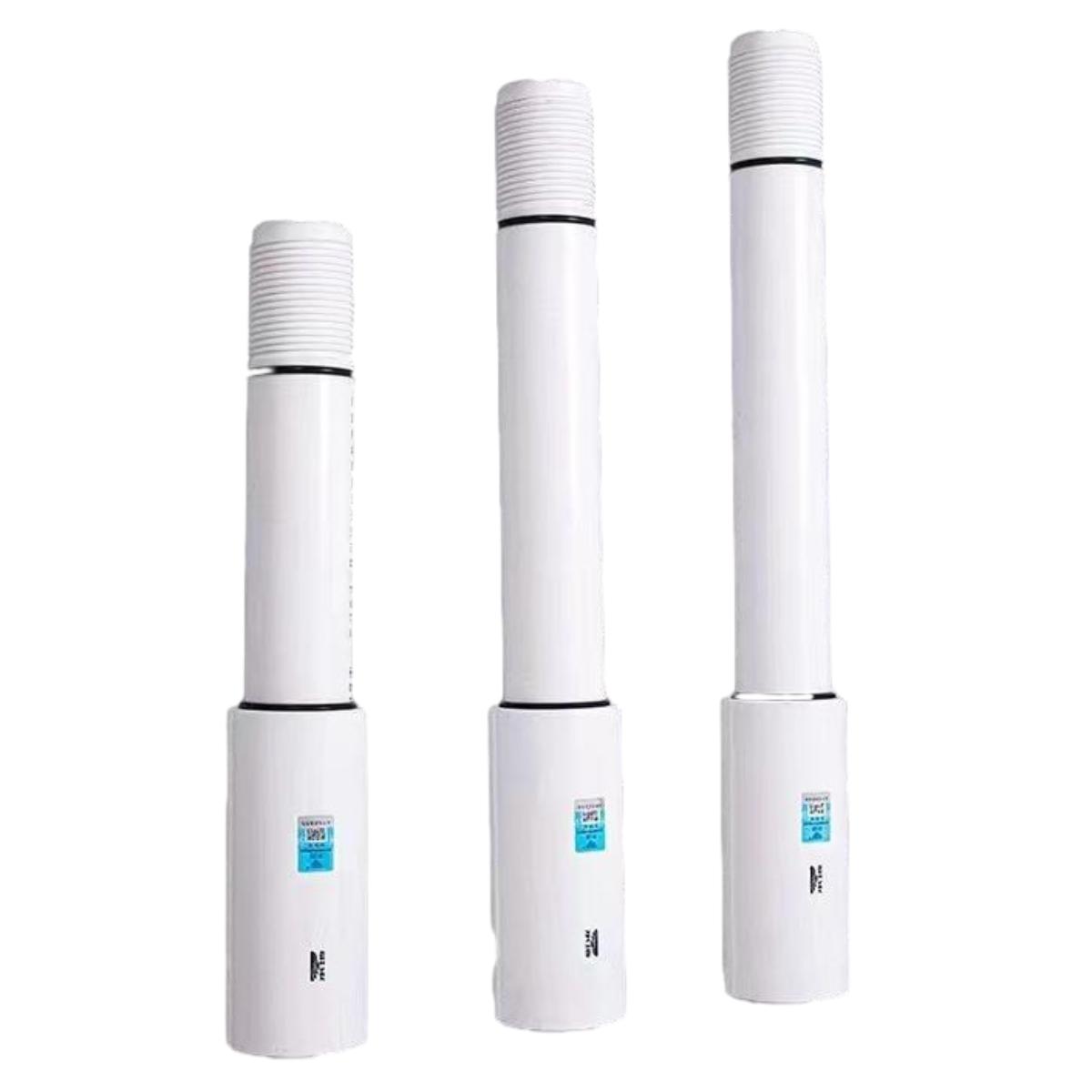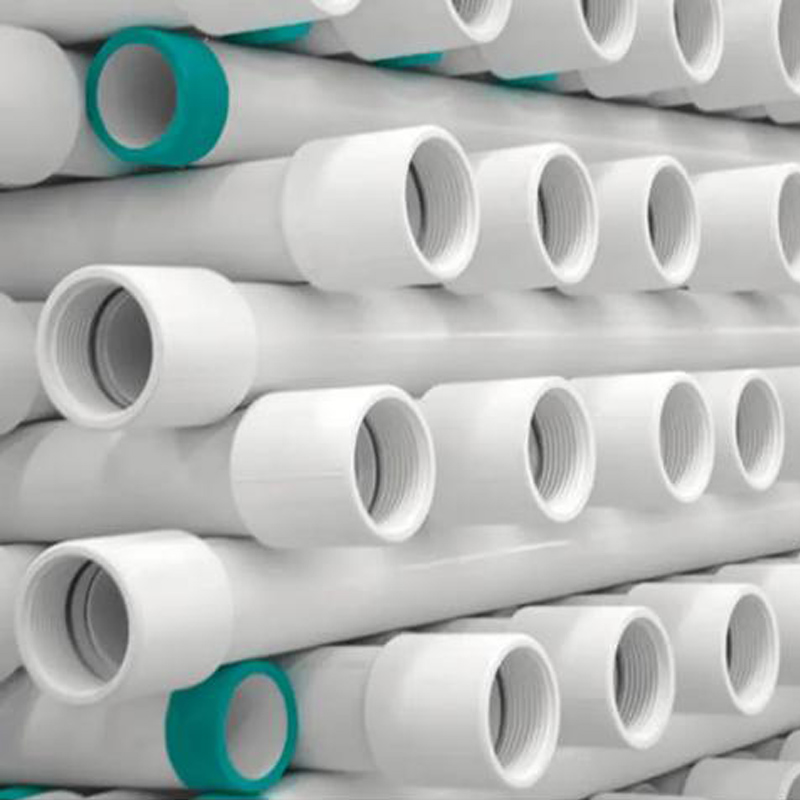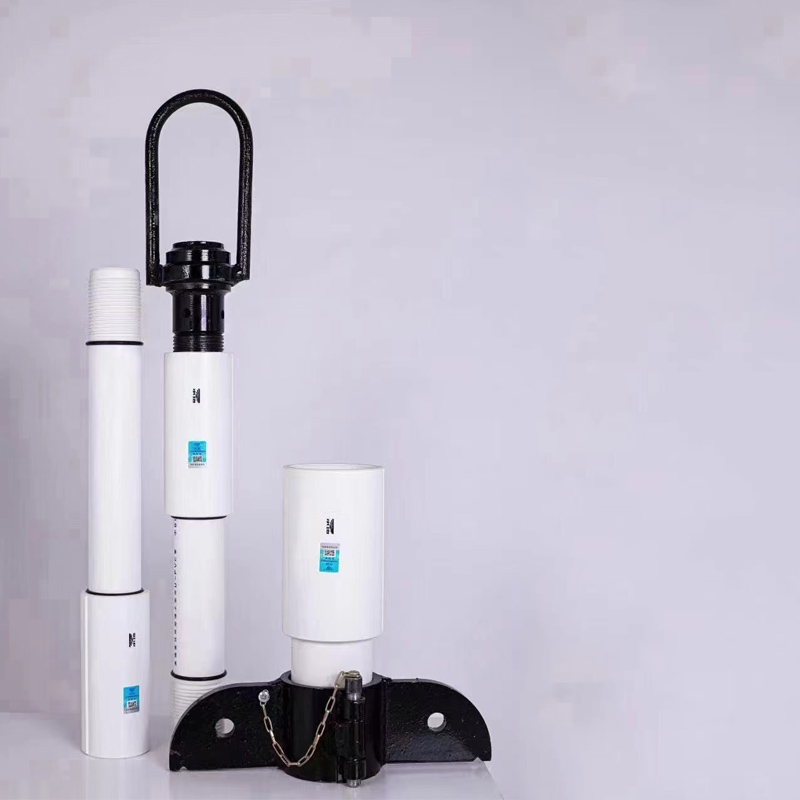Aug . 14, 2025 02:20 Back to list
Durable UPVC Column Pipes for Submersible Pumps | Efficient Water Flow
The Imperative Role of UPVC C-Column Pipes in Submersible Pumping Systems
In the demanding landscape of modern water management, the efficiency and reliability of submersible pumping systems are paramount. At the heart of these systems lies a critical component: the column pipe, responsible for delivering water from the pump to the surface. Traditional materials often fall short in terms of longevity, corrosion resistance, and operational efficiency. This is where UPVC C-column pipes for submersible pumps emerge as a superior solution, offering unparalleled advantages for a wide array of applications. Their innovative design and material properties address the common challenges faced in deep well and borewell installations, ensuring sustainable and cost-effective water extraction.
This comprehensive guide delves into the intricate details of UPVC C-column pipe technology, exploring their manufacturing processes, technical specifications, diverse applications, and the significant benefits they bring to various industries. By providing an in-depth analysis grounded in industry standards and real-world data, we aim to equip B2B decision-makers and technical personnel with the knowledge required to make informed choices for their water infrastructure projects.
Industry Trends and Market Dynamics Driving UPVC Adoption
The global demand for efficient and sustainable water management solutions is steadily rising, fueled by population growth, agricultural needs, and industrial expansion. This surge directly impacts the market for pumping systems and their associated components. Key industry trends indicate a significant shift towards materials that offer long-term reliability, minimal maintenance, and environmental sustainability. For instance, the market for plastic pipes, including UPVC, is projected to grow significantly, reaching an estimated USD 120 billion by 2027, driven by infrastructure development and the replacement of aging conventional piping systems. This growth underscores the increasing acceptance and preference for advanced polymer solutions like UPVC C-column pipes for submersible pumps.
Factors such as increasing awareness of water conservation, stringent environmental regulations, and the rising cost of energy are compelling industries to seek more efficient pumping solutions. UPVC pipes, known for their smooth bore and resistance to encrustation, minimize frictional losses, leading to substantial energy savings. Furthermore, their non-corrosive nature in diverse water chemistries offers a distinct advantage over metallic pipes, extending the operational life of submersible pump installations and reducing the total cost of ownership (TCO). This strategic shift reflects a broader industry commitment to optimizing resource utilization and enhancing operational resilience.
Understanding UPVC C-Column Pipes: Material and Manufacturing Excellence
Material Composition and Properties
Unplasticized Polyvinyl Chloride (UPVC) is a robust and rigid thermoplastic polymer, specifically engineered for high-pressure fluid conveyance. Unlike PVC, UPVC does not contain plasticizers, making it stronger and more resistant to chemical degradation. Its key material properties that make it ideal for UPVC C-column pipes for submersible pumps include exceptional chemical inertness, high tensile strength, excellent resistance to UV radiation, and minimal thermal expansion. These attributes ensure that the pipes maintain structural integrity and performance even in challenging subsurface environments. The material’s smooth inner surface, characterized by a low Hazen-Williams C-factor (typically 150), significantly reduces head loss due to friction, thereby optimizing pump efficiency.
Precision Manufacturing Process
The manufacturing of UPVC C-column pipes for submersible pumps involves a highly controlled extrusion process, ensuring uniform wall thickness, precise dimensions, and superior mechanical properties. The process typically begins with the precise blending of virgin UPVC resin with stabilizers, lubricants, and other additives to enhance performance characteristics such as impact resistance and UV stability. This mixture is then fed into a twin-screw extruder, where it is heated and forced through a die to form the continuous pipe profile. After extrusion, the pipe undergoes a vacuum calibration process to ensure precise outer diameter and roundness, followed by cooling in a water bath to solidify the material.
A critical step in producing C-column pipes is the integration of specialized thread profiles. These threads, often trapezoidal or square, are precisely machined or formed during the extrusion process to ensure secure, leak-proof connections capable of withstanding significant axial and torsional loads from the submersible pump and water column. Post-extrusion, each pipe section undergoes rigorous quality control, including hydrostatic pressure testing, dimensional checks (e.g., as per IS 12818, ASTM D1785, or DIN 8062 standards), and visual inspections to detect any imperfections. This meticulous process ensures that every pipe meets the highest industry benchmarks for performance and durability, contributing to an impressive service life often exceeding 50 years under normal operating conditions.

Illustration of the precision manufacturing process for UPVC C-column pipes.
Technical Specifications and Performance Parameters
The performance of UPVC C-column pipes for submersible pumps is quantified by several critical technical parameters, ensuring their suitability for diverse pumping depths and discharge pressures. Understanding these specifications is vital for proper system design and selection. Key parameters include nominal bore (NB), wall thickness, working pressure (PN), tensile strength, and thread type. These pipes are available in various pressure ratings, typically ranging from PN 6 (6 kgf/cm²) up to PN 15 (15 kgf/cm²) or even higher for specialized applications, accommodating depths of hundreds of meters.
The design incorporates specially designed threads – often square or trapezoidal – that provide superior load-bearing capacity and a secure connection that prevents pipe slippage or decoupling under axial tension from the pump's weight and water column. For example, a 4-inch (100mm) PN 10 pipe can safely support a total suspended load of over 1,500 kg, making it suitable for deep well installations. The smooth internal bore minimizes frictional losses, directly contributing to the submersible pump's energy efficiency. Compared to traditional galvanized iron (GI) pipes, which can accumulate rust and scale, UPVC pipes maintain their hydraulic efficiency over their entire service life, leading to consistent performance and lower operational costs.
Typical Specifications for UPVC C-Column Pipes
| Parameter | Description | Typical Range / Value | Units |
|---|---|---|---|
| Nominal Bore (NB) | Standard pipe diameter | 32 to 200 | mm |
| Pressure Rating (PN) | Maximum working pressure | 6, 9, 12, 15 | kgf/cm² (Bar) |
| Length | Standard pipe section length | 3, 6 | meters |
| Thread Type | Connection mechanism | Square / Trapezoidal | N/A |
| Tensile Strength | Ability to withstand pulling force | >50 | MPa |
| Impact Strength | Resistance to sudden force | >5 (Charpy, Notched) | kJ/m² |
| Roughness Coefficient (C-Factor) | Hazen-Williams (smoothness) | 150 | N/A |
Key Advantages and Benefits in Application
The adoption of UPVC C-column pipes for submersible pumps offers a compelling suite of advantages that translate into significant operational and economic benefits for various industries. These benefits stem directly from UPVC’s intrinsic material properties and the precision engineering involved in their manufacture.
- ✓ Superior Corrosion and Chemical Resistance: Unlike metallic pipes that are prone to rust and galvanic corrosion, UPVC is inert to a wide range of chemicals and minerals found in groundwater. This resistance ensures a consistent flow rate, maintains water quality, and eliminates the risk of pipe degradation that could lead to system failure. This is particularly crucial in agricultural and industrial settings where water sources might have varying chemical compositions.
- ✓ Enhanced Energy Efficiency: The extremely smooth internal surface of UPVC pipes minimizes frictional losses, reducing the head required by the pump. This directly translates into lower energy consumption, allowing pumps to operate more efficiently and potentially reducing electricity bills by 10-20% compared to equivalent systems using rougher pipe materials. This energy saving aspect is vital for long-term operational cost reduction.
- ✓ Exceptional Durability and Longevity: Designed to withstand significant axial and burst pressures, these pipes are highly durable. Their resistance to bio-fouling, scaling, and abrasion ensures a longer service life, often exceeding 50 years. This significantly reduces the frequency of replacements and associated labor costs, providing a robust, long-term infrastructure solution.
- ✓ Lightweight and Easy Installation: UPVC pipes are considerably lighter than steel or GI pipes, simplifying transport, handling, and installation. This reduces labor requirements and speeds up project completion times. The innovative threaded connections ensure quick and secure assembly without the need for welding or heavy machinery, leading to reduced installation costs.
- ✓ Cost-Effectiveness: While the initial cost might be comparable or slightly higher than some conventional materials, the long-term cost benefits of UPVC C-column pipes for submersible pumps are undeniable. Reduced energy consumption, minimal maintenance, extended lifespan, and lower installation costs collectively lead to a significantly lower Total Cost of Ownership (TCO) over the project's lifecycle.

Ease of installation and maintenance are key advantages of UPVC C-column pipes.
Diverse Application Scenarios Across Industries
The versatility and robust performance of UPVC C-column pipes for submersible pumps make them indispensable across a broad spectrum of industries requiring reliable water extraction and delivery. Their unique properties allow them to thrive in environments where traditional piping materials would quickly degrade.
- ● Agriculture and Irrigation: In agricultural settings, where groundwater extraction is crucial for crop irrigation, UPVC C-column pipes for submersible pumps provide a durable and efficient solution. Their resistance to corrosive chemicals often found in fertilizers or brackish water ensures the longevity of irrigation systems, even in areas with poor water quality. The consistent flow rates support optimal crop yields, and the energy savings are particularly beneficial for large-scale farming operations, directly impacting operational profitability.
- ● Residential and Commercial Water Supply: For private wells, community water schemes, and commercial buildings, these pipes ensure a clean, safe, and uninterrupted water supply. Their non-toxic nature (often compliant with NSF/ANSI 61 standards for drinking water components) prevents contamination, making them a preferred choice for potable water applications. The long service life reduces the need for frequent replacements, minimizing disruption to essential services.
- ● Industrial Water Management: Industries such as mining, textiles, and light manufacturing often rely on borewell water for various processes. UPVC C-column pipes for submersible pumps excel in these demanding environments due to their resilience against aggressive chemicals and resistance to scaling, which can be prevalent in industrial water sources. This reliability translates to reduced downtime and consistent water availability for critical industrial operations.
- ● Aqua Farming and Fisheries: In aquaculture, maintaining water quality is paramount. UPVC pipes provide a safe and inert conduit for water circulation in fish farms and hatcheries, preventing any leaching of harmful substances into the aquatic environment. Their durability in saline or brackish water conditions further enhances their suitability for these specialized applications.
The widespread adoption of UPVC C-column pipes for submersible pumps across these sectors underscores their adaptability and superior performance compared to conventional alternatives. Their ability to deliver consistent performance while reducing operational expenses makes them a strategic investment for any water extraction project.
Customized Solutions and Integration Engineering
Recognizing that every water pumping project presents unique challenges, leading manufacturers of UPVC C-column pipes for submersible pumps offer tailored solutions and comprehensive integration engineering services. This approach goes beyond mere product supply, focusing on delivering a holistic system that meets specific operational demands, environmental conditions, and budgetary constraints. Customization can involve adjusting pipe lengths, specific pressure ratings, or even developing unique thread designs for specialized connections, ensuring seamless compatibility with existing infrastructure.
For instance, a client might require pipes suitable for extremely deep borewells (exceeding 300 meters) or applications involving highly acidic or alkaline water. In such cases, manufacturers can provide higher pressure rating pipes (e.g., PN 18) with enhanced UV stabilizers or specialized gaskets. System integration support includes hydraulic calculations to optimize pipe diameter and pump selection, ensuring maximum flow rates with minimal energy consumption. This consultative approach, combined with advanced engineering capabilities, allows for the deployment of highly efficient and reliable submersible pumping systems, demonstrating a commitment to solving complex client problems. Experienced providers leverage decades of service experience, working closely with engineers and project managers from diverse industries, to develop robust solutions that stand the test of time and demanding operational environments.

Customized UPVC C-column pipes ensuring perfect fit and optimal performance.
Quality Assurance, Delivery, and Customer Support
For B2B clients, the reliability of a supplier extends beyond product quality to encompass robust quality assurance processes, dependable delivery logistics, and comprehensive after-sales support. Reputable manufacturers of UPVC C-column pipes for submersible pumps adhere to stringent quality control protocols, often holding certifications such as ISO 9001 for quality management and ISO 14001 for environmental management. Each batch of pipes undergoes rigorous testing, including hydrostatic pressure tests to verify burst strength, tensile strength tests on threads, and impact resistance tests, ensuring compliance with international standards like ASTM D1785 and IS 12818. This commitment to quality minimizes the risk of field failures and maximizes product longevity.
Delivery cycles are optimized through efficient inventory management and streamlined logistics, allowing for timely dispatch of orders, typically within 7-14 business days for standard products, and slightly longer for customized solutions. This ensures that projects stay on schedule and avoids costly delays. Furthermore, comprehensive product warranties, often ranging from 5 to 10 years, underscore the manufacturer's confidence in their product's durability and performance. Dedicated customer support teams provide technical assistance, installation guidance, and troubleshooting, ensuring clients receive continuous support throughout the product lifecycle. This holistic approach builds trust and fosters long-term partnerships, vital for complex infrastructure projects.
Frequently Asked Questions (FAQ) about UPVC C-Column Pipes
Q1: What makes UPVC C-column pipes superior to traditional GI or steel pipes for submersible pumps?
UPVC C-column pipes for submersible pumps offer several key advantages over traditional metallic pipes. They are completely corrosion-resistant, eliminating issues like rusting, scaling, and galvanic corrosion which plague GI or steel pipes, especially in aggressive water conditions. This prevents reduction in bore diameter and ensures consistent flow rates. UPVC pipes are also significantly lighter, making installation and handling easier and faster, reducing labor costs. Their smooth internal surface minimizes frictional losses, leading to higher energy efficiency for the pump and lower operational costs over time. Furthermore, UPVC is non-toxic and suitable for potable water applications, unlike some metallic pipes that can leach heavy metals.
Q2: What is the typical lifespan of UPVC C-column pipes?
With proper installation and under normal operating conditions, UPVC C-column pipes for submersible pumps have an exceptionally long service life, often exceeding 50 years. This longevity is attributed to their inherent resistance to corrosion, chemical degradation, and UV radiation, coupled with their robust mechanical strength. This extended lifespan significantly reduces the need for replacements and maintenance, contributing to a lower Total Cost of Ownership (TCO) compared to alternative materials that may require more frequent servicing or replacement.
Q3: Are UPVC C-column pipes suitable for deep borewell applications?
Yes, UPVC C-column pipes for submersible pumps are designed to perform reliably in deep borewell applications. They are manufactured in various pressure ratings (PN values), allowing selection based on the specific depth and head requirements. For instance, PN 15 pipes can handle very deep installations with significant water column pressure. The specially designed square or trapezoidal threads ensure a strong, load-bearing connection that can safely support the weight of heavy submersible pumps and the water column, even at depths of several hundred meters, demonstrating their robust engineering for such demanding scenarios.
Conclusion
The evolution of water management infrastructure increasingly points towards advanced materials that promise sustainability, efficiency, and long-term reliability. UPVC C-column pipes for submersible pumps stand out as a prime example of this trend, offering a compelling alternative to traditional piping materials. Their inherent resistance to corrosion, exceptional energy efficiency, remarkable durability, and ease of installation collectively translate into a significantly reduced Total Cost of Ownership (TCO) over the lifespan of pumping systems. From agricultural irrigation to industrial water supply and residential borewells, these pipes consistently deliver superior performance, ensuring uninterrupted water flow and optimizing operational expenses.
For B2B decision-makers and technical experts seeking robust, reliable, and cost-effective solutions for their submersible pumping needs, investing in high-quality UPVC C-column pipes for submersible pumps represents a strategic choice. Their proven track record, backed by rigorous manufacturing standards and comprehensive customer support, provides the confidence necessary for critical water infrastructure projects worldwide.
References
- American Society for Testing and Materials (ASTM) International Standards for Plastic Piping Systems.
- International Organization for Standardization (ISO) 9001 and ISO 14001 Guidelines for Quality and Environmental Management.
- Bureau of Indian Standards (BIS) IS 12818: "UPVC Pipes for Potable Water Supplies – Specification".
- Water Environment Federation (WEF) Technical Publications on Water Management and Infrastructure.
-
DN100 PVC Well Casing Pipes - Durable & Corrosion-Resistant
NewsAug.13,2025
-
Flexible 32mm HDPE Pipes in Coil | Durable Water & Gas Lines
NewsAug.12,2025
-
DN50 HDPE Pipes in Coils: Flexible, Durable & Easy Install
NewsAug.11,2025
-
32mm HDPE Pipes in Coil: Durable, Flexible, Easy Install
NewsAug.10,2025
-
140mm PVC Drilling Pipe: Durable & Efficient Well Casings
NewsAug.09,2025

